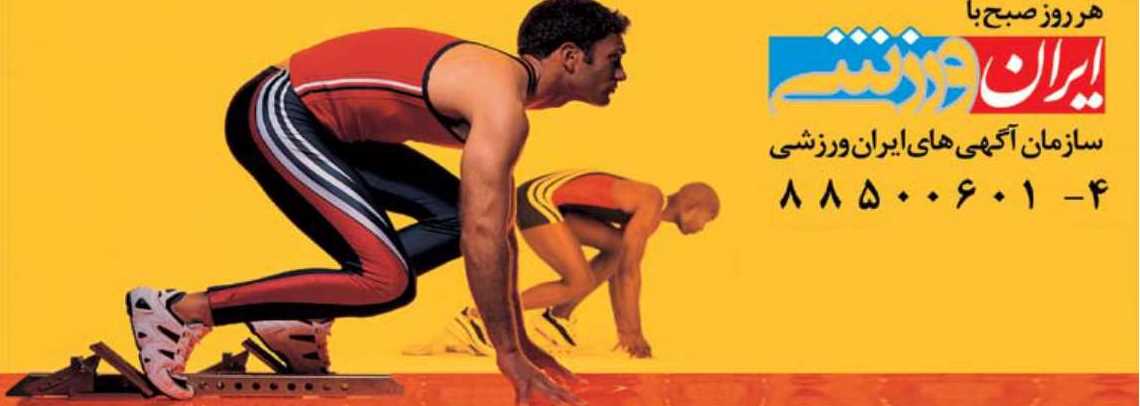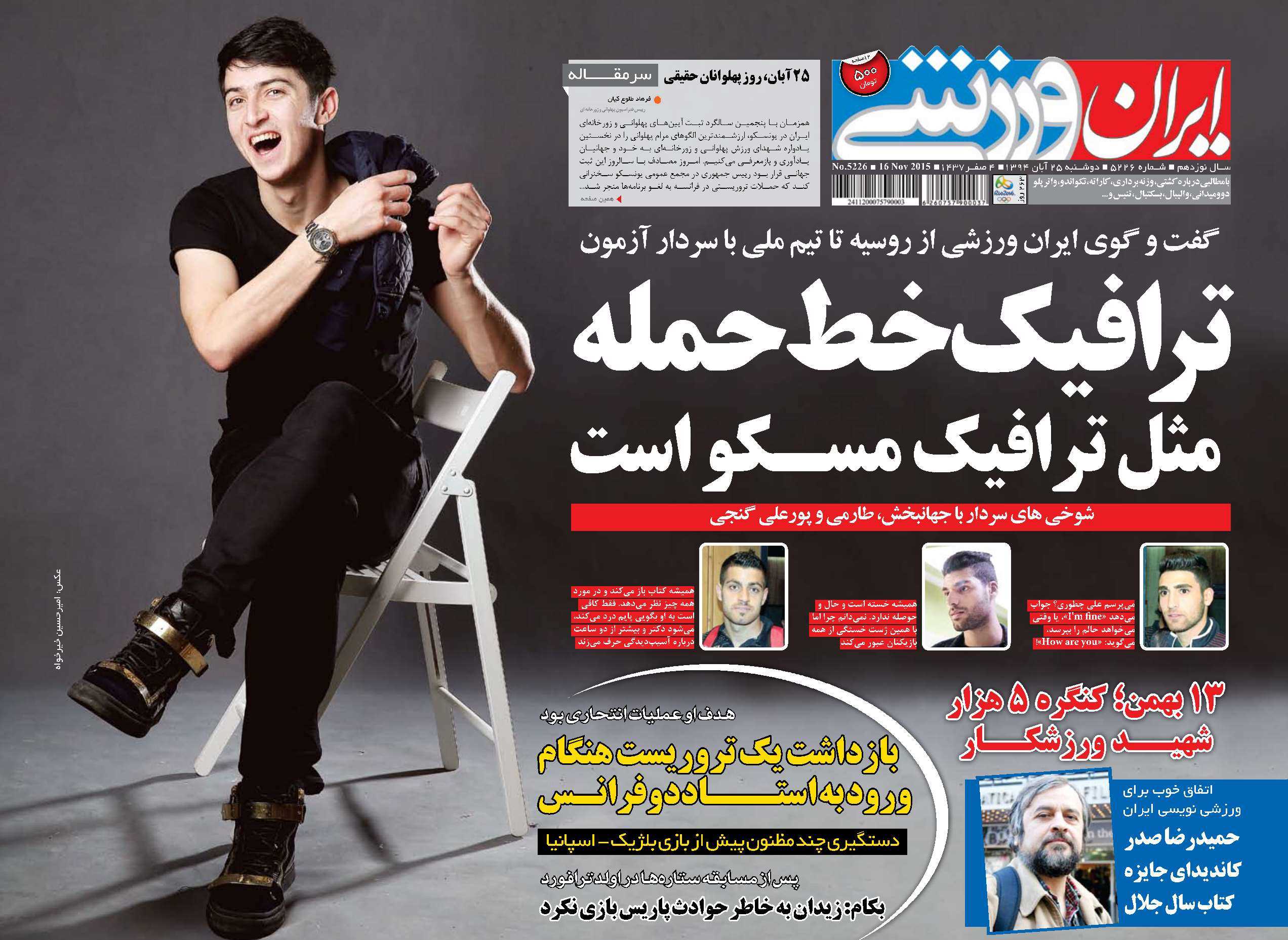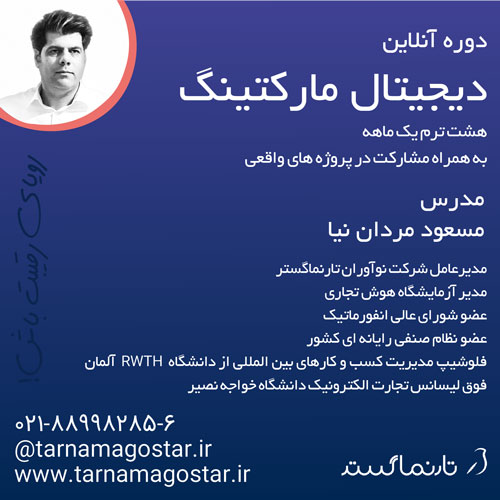عناوین این صفحه
جستجو بر اساس تاریخ
نظرسنجی
شماره : 6931 /
۱۴۰۰ چهارشنبه ۱ دي
|
|
کلینشیت، معیار اشتباه برای بررسی عملکرد دروازهبان
سرمقاله
آرمن ساروخانیان
سالهای زیادی از ورود واژه کلینشیت به ادبیات فوتبال ایران نمیگذرد. در گذشته معیار سنجش عملکرد دروازهبان واکنشهایش بود. معمولاً دروازهبانها را با واکنشهای خوبی که در طول فصل یا دوران حرفهایاش داشت به خاطر میسپردند. گافهای دروازهبانها از موارد دیگری بود که به راحتی از حافظه جمعی پاک نمیشد. همانطور که یک شیرجه دیدنی یا مهار یک تک به تک اعتبار یک دروازهبان را افزایش میداد، یک گل بد هم میتوانست برچسب نامطمئن را کنار نام او بنشاند.
در آن سالها خبری از شمردن کلینشیتها نبود، ولی با ازدیاد ترجمه متون فوتبال و ورود اصطلاحات فنی و جدید، این واژه به تدریج باب شد. گسترش سایتهای آماری هم کمک کرد که شمردن تعداد کلینشیتها برای هواداران آسان شود. تأثیر مهمتر اما ورود این آیتم آماری به قراردادها بود. دروازهبانها با مشورت مدیران برنامهها تلاش کردند تعداد کلینشیت به عنوان پاداش به قرارداد اضافه شود تا به کمک آن رقم بالاتری دریافت کنند.
حساسیت روی تعداد کلینشیت به رسانهها هم کشیده شده و این روزها معیاری برای سنجش عملکرد دروازهبانان است، ولی چقدر میتوان به این عدد برای بررسی فنی شماره یکها اعتماد کرد؟
زمانی که یک دروازهبان واکنشهای خوبی دارد، کماشتباه است و دروازهاش را در جریان 90 دقیقه بسته نگه میدارد، شایسته تقدیر است، ولی نمیتوان عمکرد او را تنها با کلینشیت سنجید و تعداد موقعیتهای حریف را در نظر نگرفت. ثبت کلینشیت برای دروازهبانی که در تیم بالای جدولی بازی میکند خیلی آسانتر از همتای اوست که عضو یک تیم ضعیفتر است. دروازهبان یک تیم بالای جدولی ممکن است در جریان بازی یکی دو بار مجبور به واکنش شود، ولی شماره یک حریف مجبور است برای 90 دقیقه تمرکزش را حفظ کند و دائماً در معرض تهدیدهای مختلف است.
شرایط حتی برای دروازهبانهای تیمهای مدعی هم یکی نیست. مثلاً در لیگ برتر تیمهای استقلال و آلومینیوم اهمیت بیشتری به ساختار دفاعی و تخریب بازی حریف میدهند و اثر این رویکردها در آمار پایین گلهای خورده این تیمها نمایان است. تیمی مثل سپاهان اما با نفرات پرشمار در حمله شرکت میکند و احتمال آسیبپذیری دروازهاش بیشتر است.
کلینشیت به ما یادآوری میکند که یک دروازهبان اشتباه نکرده، ولی بر اساس آن نمیتوان تشخیص داد که او چقدر تحت فشار بوده و چند بار مجبور به واکنش شده است. در پایان فصل این تعداد کلینشیتها است که میشمارند، ولی این معیار دقیقی برای بررسی عملکرد یک دروازهبان نیست.
کارشناسان آماری دائماً در تلاشند پارامترهای جدیدی پیدا کنند که معیار دقیقتری برای سنجش عملکرد بازیکنان و تیمها باشد. آنها گاهی به فرمولهای پیچیده متوسل میشوند تا درصد اشتباهات کمتر شود، ولی تمام فرمولها باگهایی دارند و گاهی ممکن است اشتباه کنند. مثلاً زمانی که گفته شد نتیجه بازی معیار دقیقی از برتری یک تیم نیست و گاهی ممکن است تیمی با وجود برتری حریفش به پیروزی برسد، «XG» (امید گل) خلق شد که نشاندهنده تعداد موقعیتهای یک تیم و کیفیت آنهاست. با این حال این پارامتر هم گاهی با خطا همراه است.
درباره دروازهبانی هم معیارهایی مثل تعداد مهار وجود دارد که نسبت به کلینشیت دقیقتر است، ولی آن هم گاهی ممکن است واقعیت بازی را بازگو نکند، چه برسد به کلینشیت که در ثبت آن عملکرد دفاعی و سبک بازی تیم و قدرت حریف دخیل است.
با همه اینها تا زمانی که مدیران برنامهها و دروازهبانها روی تعداد کلینشیت اصرار دارند و آن را به بهانههای مختلف یادآوری میکنند، بعید است که این رسم اشتباه فراموش شود.
از انصراف بازیکنان الجزایری تا عذرخواهی بازیکن سوری بابت حضور در بازی دوستانه جنجالی
عضو هیأت رئیسه مجلس: مهدویکیا باید جبران کند
ایران ورزشی - با گذشت چند روز از بازی تیم «منتخب بازیکنان عرب» و «منتخب جهان» هنوز حاشیههای آن ادامه دارد. این بازی جمعه هفته گذشته در دوحه قطر برگزار شد که در آن تعدادی از ستارگان سابق فوتبال جهان در قالب دو تیم حضور داشتند.
آنچه این بازی را از فرم یک بازی دوستانه عادی خارج کرد، حضور آورام گرانت، مربی اسرائیلی روی نیمکت تیم منتخب جهان بود. ساعاتی پیش از سوت شروع بازی خبر رسید که رباح ماجر، رفیق سیفی و رفیق هالیش در اعتراض به حضور سرمربی سابق چلسی از حضور در این بازی انصراف دادند. در سایت فیفا هیچ اشارهای به تحریم این بازی نشد، ولی خبرگزاریهای مختلف خیلی زود به آن پرداختند. الجزایر هیچگونه روابط دیپلماتیکی با رژیم صهیونیستی ندارد و تیم ملی این کشور در سال 2016 بازی دوستانه با غنا را به خاطر حضور گرانت روی نیمکت این تیم لغو کرد. همچنین فتحی نورین، جودوکای الجزایری در المپیک توکیو حاضر نشد با حریف رژیم صهیونیستی روبهرو شود که بازتاب زیادی داشت.
در طرح پیراهن دو تیم برای این بازی نواری دیده میشد که از پرچم کشورهای مختلف از جمله اسرائیل تشکیل شده بود. نواف التمیاط، بازیکن سابق تیم ملی عربستان و عماد الحوسنی بازیکن سابق تیم ملی عمان در اعتراض به حضور پرچم اسرائیل روی پیراهنشان، پیش از شروع بازی تصمیم گرفتند با ماژیک آن را سیاه کنند.
کاربران عرب بعد از بازی در شبکههای اجتماعی پستهای زیادی در حمایت از تصمیم این دو بازیکن منتشر کردند.
محمود نصرالله، یکی از این کاربران بود که نوشت: «برخی از بازیکنان مسلمان و عرب به دلیل حضور یک صهیونیست در این مسابقه حاضر نشدند اما تأثیر حرکت نواف التمیاط بیشتر بود که پرچم اسرائیل را محو کرد و موجب خشم و عصبانیت صهیونیستها شد. تو مردی نواف و یک مسلمان واقعی؛ به تو افتخار میکنیم.»
محمد ابراهیم هم اینگونه واکنش نشان داد: «حرکت نواف التمیاط پاسخی به سازشگران بود و آنها که تصور میکنند مسلمانان و کشورهای عربی به سازشگری رضایت خواهند داد. پیام ما روشن است، مسأله فلسطین فراموش نخواهد شد و سازش با صهیونیستها خیانت است.»
فراس الخطیب، بازیکن سابق سوریه هم از اعضای تیم منتخب بازیکنان عرب در این مسابقه بود که بعد از بازی با انتقادات هموطنانش در شبکههای اجتماعی روبهرو شد. همچنین کمیته ملی المپیک سوریه الخطیب را به دلیل تخلف از قوانین و پروتکلهای این کمیته و بیتوجهی به اصول و مبانی کشور اخراج کرده است.
در پی صدور این بیانیه، الخطیب اعلام کرد که هنوز چنین مسألهای به شکل رسمی به وی ابلاغ نشده و انتظار داشته در این خصوص از او دعوت شود تا نسبت به ارائه توضیحات اقدام کند. مهاجم سابق تیم ملی سوریه مدعی شد که از حضور مربی اسرائیلی در این بازی بیخبر بوده و از تصمیم کمیته ملی المپیک سوریه نیز شگفتزده شده است. الخطیب همچنین گفت که پرچم اسرائیل را مثل چند بازیکن دیگر محو کرده و بابت ناراحتیهای پیش آمده نزد مردم کشورش عذرخواهی کرد.
مهدی مهدویکیا هم به نمایندگی از ایران در این مسابقه حاضر بود و با پیراهن آبی تیم منتخب بازیکنان عرب مقابل منتخب بازیکنان جهان حاضر شد، ولی این ملیپوش سابق هنوز واکنشی نسبت به حضور گرانت روی نیمکت حریف نشان نداده و سکوت کرده است.
سکوت سرمربی تیم امید در روزهای گذشته با اعتراض تعدادی از نمایندگان مجلس روبهرو شد. دیروز هم نوبت علیرضا سلیمی، عضو هیأت رئیسه مجلس بود که به مهدویکیا اعتراض کند و گفت: «کسانی که به مهدویکیا مشورت دادند، این کار را دقیق انجام ندادند و او را در دام انداختند. او خواسته یا ناخواسته به سمتی قدم برداشته که منتهی به مشروعیت بخشی به این رژیم قاتل و خونریز شده است. باید به احترام مردم ظلمستیز ایران و هواداران فوتبال جبران کند. مهدویکیا حتماً یک عمر «حسین حسین» گفته که با ظلم و ستم زاویه دارد. مهدویکیا باید جبران کند. تلقی من این است که ندانسته وارد این مسیر شده اما اگر دانسته بوده، نمیدانم باید اسمش را چه گذاشت.»
شبکه اسکای چطور از فرصت فرمول یک ابوظبی استفاده کرد؟
رسول مجیدی @Rasoulmajidi هفته گذشته در ابوظبی یکی از مهمترین مسابقات تاریخ فرمول یک برگزار شد. یکی از مهمترین مسابقات دهه گذشته این رشته پربرخورد. بعد از سالها کار قهرمانی رقابتها به دور آخر کشیده بود و میلیونها بیننده برنامهریزی میکردند تا این رقابت را به صورت زنده ببینند.
در این میان قاعدتاً استرس بینندههای انگلیسی و هلندی بیشتر هم بود. آنها نه تنها به خاطر تب و تاب مسابقه بلکه به دلیل قرار داشتن هموطنانشان در پیشانی رانندهها از هیجان بیشتری برخوردار بودند.
در انگلیس حق پخش تصاویر فرمول یک در اختیار شبکه بزرگ اسکای است. این شبکه سالهاست که این حق را به صورت انحصاری در بریتانیا از فرمول یک خریده. آخرین قرارداد آنها در سال 2019 عقد شد و اسکای حاضر شد یک میلیارد پوند (3/ 1 میلیارد دلار) برای پوشش 5 فصل پرداخت کند.
علیرغم پرداخت این مبلغ هنگفت اما شبکه اسکای هفته پیش تصمیم جالبی گرفت. آنها که میدانستند بیشتر از هر زمان دیگری علاقهمندان رو به خرید پکیجهای اسکای آوردهاند و در مسابقه ماقبل آخر به رکورد 7/ 2 میلیون بیننده رسیدند، تصمیم گرفتند رقابت دور آخر را در انگلیس به صورت مجانی از یکی از شبکههای دیگر انگلیسی هم پخش کنند!
این تصمیم اسکای به دلیل این گرفته شد که همه انگلیسیهای علاقهمند بتوانند شاهد رقابت همیلتون انگلیسی و رقیب هلندیاش باشند. تصمیمی که با حمایت و قدردانی مسئولان فرمول یک هم همراه شد.
استفان فنروین، مدیر اسکای انگلیس و اروپا هفته پیش و بعد از توافق با شبکه E4 به خبرنگاران گفت: «رقابت یکشنبه فرمول یک، یکی از بزرگترین رخدادهای ورزشی دهه گذشته است و میتواند یک لحظه تاریخی برای ورزش بریتانیا باشد. ما هم تصمیم گرفتیم در ایام کریسمس این رقابت را از طریق همکاری با شبکه E4 به کل ملت هدیه بدهیم. حالا همه میتوانند در این لحظه بزرگ ملی که لوییز همیلتون برای هشتمین قهرمانی تاریخیاش تلاش میکند، شریک باشند.»
اینکه شبکه E4 برای به دست آوردن این حق پخش چه مبلغی به اسکای داده مشخص نیست اما مسأله این است که اگر اسکای این تصمیم را نمیگرفت میلیونها انگلیسی نمیتوانستند این رقابت را ببینند. شبکه E4 که به صورت رایگان در انگلیس پخش میشود، پیشتر رقابتهای پارالمپیک توکیو را هم پوشش داده بود و البته طی قراردادی با اسکای حق پخش رقابتهای فرمول یک انگلیس را هم به دست آورده و هرسال تنها این دور را که در پیست سیلور استون برگزار میشود برای بینندههایش پخش میکند تا انگلیسیها لااقل سالی یکبار رقابتی که خودشان میزبان هستند را رایگان تماشا کنند.
استفانو دومنیکالی، رئیس فرمول یک هم که از این اقدام اسکای خشنود بود در مصاحبهای گفت: «ما خیلی هیجانزدهایم که رقابت یکشنبه در شبکه E4 هم پخش میشود و همه میتوانند فینال هیجانانگیز این فصل حماسی را به صورت زنده ببینند. شوق اسکای برای فرمول یک خارقالعاده است و این تصمیم نشان داد آنها عاشق این ورزش و میلیونها هوادارش در بریتانیا هستند.»
همکاری اسکای و E4 باعث شد تا فینال تاریخی یکشنبه هفته گذشته در ابوظبی، 7 میلیون و نهصد هزار نفر بیننده در انگلیس داشته باشد. از این مقدار 3 میلیون بیننده متعلق به شبکه اسکای F1 بوده و 4/4 میلیون برای شبکه E4. مابقی هم اختصاص به سایر شبکههای زیرنظر اسکای داشته. این یک عدد تاریخی برای هر دو شبکه به حساب میآید و برای اولین بار است که شبکه اختصاصی فرمول یک پکیج اسکای بیش از 3 میلیون مخاطب داشته.
این اقدام اسکای نشان داد، رایگان پخش کردن مسابقات از شبکه دیگر در آن یکشنبه تاریخی نه تنها بینندههای اسکای را کاهش نداده که برای اولین بار در تاریخ تعدادشان را از مرز 3 میلیون نفر هم گذرانده و در ضمن چیزی حدود 5/ 4 میلیون نفر دیگر هم که شاید هیچوقت امکان تماشای رقابتها را نداشتند عاشق این ورزش کرده. اتفاقی که میتواند در فصل بعد باعث شود بخشی از این جمعیت اشتراک شبکه اسکای را بخرند و درآمد بیشتری برای این غول قدرتمند حوزه رسانه به همراه بیاورند. اسکای با تیزهوشی خاصی از آخرین رقابت فرمول یک 2021 استفاده کرد و حالا هم برندی محبوبتر است هم پرمخاطبتر.
اجرایی شدن پروژه «اسپای بارسا» و نوسازی نیوکمپ!
گزارش
علی بابازاده
خبر عجیب بود و شوکهکننده؛ حداقل در دورانی که بارسلونا در منجلابِ مشکلات مالی گیر کرده و دست و پا میزند، توقع چنین ولخرجی از مقامات و مدیران بلوگرانا نداشتیم و تصورات بر این بود تا باشگاه پول در نظر گرفته شده برای پروژههای نوسازی و عمرانی را خرجِ نقل و انتقالات و خرید بازیکنان جدید کند.
در واقع ایده گسترش و نوسازی ورزشگاه، تبدیل به ترفندی شده که میتواند طی یک بازه زمانی سه تا پنج ساله باشگاه را به یک سوددهی مناسب برساند و لاپورتا دقیقاً در دورانی که آبیاناری پوشان با مشکلات شدید اقتصادی دست و پنجه نرم میکنند و پاندمی کرونا نیز اوضاع را بدتر کرده، به فکر تغییر شرایط افتاده؛ بارسلونا سالها زودتر از رئالمادرید و در دوره نخستین مدیریتِ خوان لاپورتا، به فکر نوسازی ورزشگاه نیوکمپ افتاد ولی این مادریدیها بودند که با برنامههای مالی مناسب گوی سبقت را از رقیب دیرینه ربودند و سانتیاگو برنابئو را به استادیومی «ممتاز و فوق مدرن» تبدیل کردند.
روز گذشته و با اعلام لاپورتا، اعضای رسمی باشگاه بارسلونا در رفراندومی که روز یکشنبه برای تأیید پروژه اسپایبارسا برگزار شد، چراغ سبز نشان دادند و به این ترتیب کادر مدیریتی خوان لاپورتا به صورت قانونی میتواند پروژه نوسازی نیوکمپ و شهرک ورزشی بارسلونا را کلید بزند. کاتالانها از این پروژه به عنوان جواهری ۱۸ هکتاری در قلب بندر بارسلونا نام بردهاند و قرار است پنلهای خورشیدی در سقف، سیستم تصفیه آب جدید، نوسازی پالائو بلوگرانا، احداث هتل و دفتر اعضا در این پروژه قرار بگیرد و پس از پایان پروژه، بخش اعظم جایگاه تماشاگران مسقف خواهد شد. نوسازی نیوکمپ یعنی رشد ۱۵۰ میلیون یورویی درآمدهای بارسا و اگر تیم مدیریتی بر سر فروش حق نام استادیوم نیز با اسپانسرهای پیشنهادی به توافق برسد، سرمایهای دو برابر به باشگاه تزریق خواهد شد. پیشبینی شده پروژههای نوسازی تا پایان سال ۲۰۲۵ به پایان برسد و برنامهریزی مدیران و مقامات بالارده بارسا به گونهای بوده که بیشتر بازیها در همان ورزشگاه نیوکمپ برگزار شود و تیم به مانند رئال مادرید مجبور نشود تا به سایر زمین چمنهای کمپ باشگاه کوچ کند.
لاپورتا گفته ایده نوسازی نیوکمپ نه یک هزینه و خرج اضافی، بلکه یک سرمایه گذاری بلند مدت و سودآور برای رساندن بارسلونا به اهداف مالی و تضمین آینده آن است. نکته اساسی اینجاست که رئال طی سه سال اخیر و روزهای احیای سانتیاگو، تنها دو بازیکن جدید به نامهای فرلاند مندی و داوید آلابا داشته و بیشتر تکیه زیدان و آنجلوتی به پشتوانه بازیکنان سابق و ترکیب و نیمکتی قوی بوده! پرز قید هزینه در بازار نقل و انتقالات را زد و با سیاستِ اقتصادی خود، «ریاضتِ اقتصادی» را به کهکشانیها تحمیل کرد تا هر چه زودتر برنابئوی جدید آماده شود.
لاپورتا اما به پشتوانه کدام ترکیب قوی قید خرید ستارههای جدید را خواهد زد؟ بلوگرانا همین حالا نیز که به دست ژاوی افتاده، پر از مشکلات مالی و فنی است و همه میدانیم که خرید ستارگان تازهوارد چه اهمیتی برای سرمربی سابق السد دارد.
لاپورتا دست به قماری بزرگ زده و کاش قبل از پروژه اسپای بارسا، از هواداران میپرسید که آیا حاضر بودند در ازای نیوکمپی جدید، تیمشان را با نفراتی چون آرائوخو، لوک دییونگ و مینگوئزا در لیگ اروپا ببینند؟
|
|
آدرس مطلب:
آدرس مطلب:
آدرس مطلب:
آدرس مطلب:
آدرس مطلب:
|
ویژه نامه | آرشیو
































